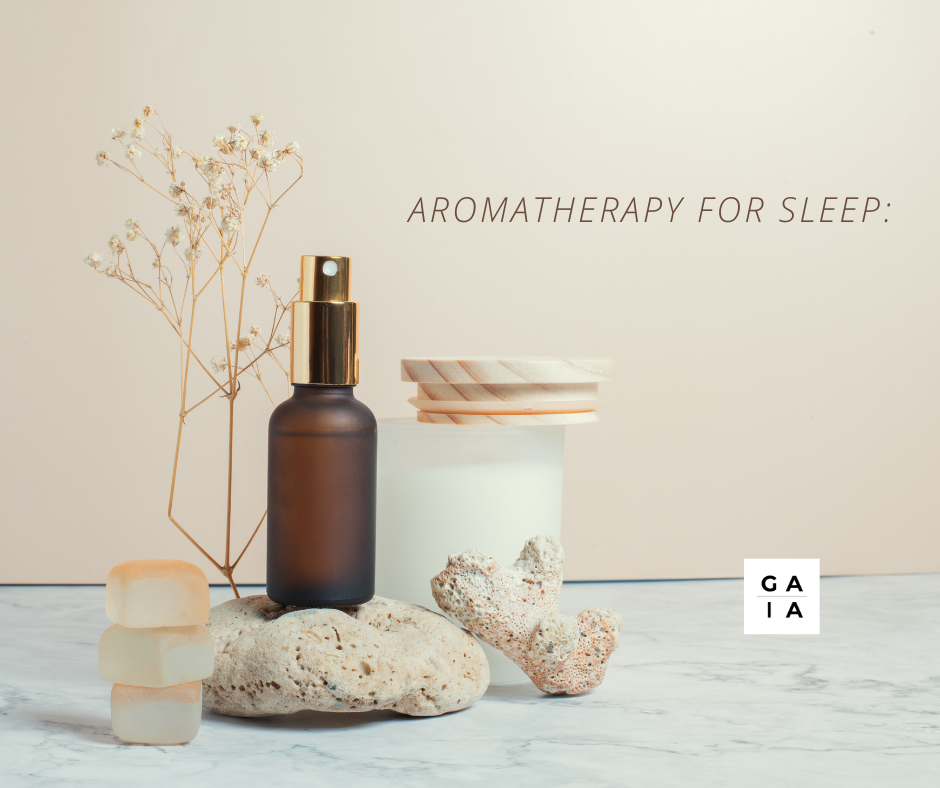
Aromatherapy for Sleep: Essential Oils and Techniques for a Good Night's Rest
Do you struggle with getting a good night's rest? If so, you're not alone. According to the National Sleep Foundation, around 60 million Americans have difficulty sleeping. Lack of sleep can have serious consequences, including decreased productivity, poor memory and concentration, and a higher risk of accidents and injuries. It can also lead to long-term health problems, such as obesity, diabetes, and heart disease.
One way to improve sleep quality is through the use of aromatherapy. Aromatherapy is the practice of using essential oils – highly concentrated plant extracts – to promote health and well-being. Essential oils can be inhaled or applied topically to the skin, and they are thought to have a variety of therapeutic benefits.
For centuries, people have used essential oils to promote sleep and relaxation. Many essential oils have sedative properties that can help calm the mind and body, making them a natural choice for improving sleep quality. In this article, we'll explore some of the best essential oils for sleep, as well as techniques for using them to get a good night's rest.
The Best Essential Oils for Sleep
There are many essential oils that are believed to have sedative properties and can help improve sleep quality. Here are a few examples:
-
Lavender:
Lavender is a popular essential oil that is often used to promote sleep and relaxation. It has a calming and soothing aroma that is thought to help reduce stress and anxiety, which can interfere with sleep.
-
Sandalwood:
Sandalwood is an essential oil that is extracted from the wood of the Santalum album tree, which is native to India. It has a warm, woody aroma that is known for its calming and relaxing properties.
-
Ylang-ylang:
Ylang-ylang is an essential oil that is extracted from the flowers of the Cananga odorata tree, which is native to Southeast Asia. It has a sweet, floral aroma that is known to promote sleep and relaxation, as it is believed to have a calming effect on the mind and body. It may help reduce stress and anxiety, which can interfere with sleep.
-
Bergamot:
Bergamot is an essential oil that is extracted from the peel of the bergamot orange, a citrus fruit native to Italy. It has a refreshing and uplifting aroma that is often used to improve mood and reduce stress. Bergamot essential oil is not traditionally used for sleep, as it is known for its stimulating and energizing properties. However, it may have some benefits for sleep when used in combination with other essential oils.
Techniques for Using Essential Oils for Sleep
There are many different techniques for using essential oils to improve sleep quality. Here are a few examples:
-
Diffusing: One of the most popular ways to use essential oils for sleep is by diffusing them into the air. A diffuser is a device that releases a fine mist of essential oil into the air, allowing you to inhale the aroma. There are many different types of diffusers available, ranging from simple candle-powered diffusers to more advanced ultrasonic diffusers. Simply add a few drops of your favourite essential oil (or a blend of essential oils) to the diffuser and turn it on a few hours before bedtime.

-
Inhalation: Another simple way to use essential oils for sleep is by inhaling them directly from the bottle or from a tissue or cotton ball. Simply hold the bottle or tissue up to your nose and inhale deeply for a few minutes before bedtime.

-
Topical application: Essential oils can also be applied topically to the skin in a diluted form. Mix a few drops of essential oil with a carrier oil (such as coconut oil or jojoba oil) and apply to the skin in a circular motion. You can apply the mixture to your temples, wrists, or behind your ears, or you can add a few drops to a warm bath before bedtime.

-
Massage: Massaging essential oils into the skin can be a relaxing and effective way to use them for sleep. Mix a few drops of essential oil with a carrier oil and use long, slow strokes to massage the mixture into your skin. You can focus on areas like your temples, neck, and feet, or you can give yourself a full-body massage before bedtime.

- Linens: You can also use essential oils to infuse your linens with a calming scent. Simply add a few drops of essential oil to a tissue or cotton ball and place it in a drawer or under your pillow. As you sleep, the aroma will be released and can help promote relaxation and a good night's rest.
Conclusion
Aromatherapy can be a simple and effective way to improve sleep quality and promote relaxation. By using essential oils with sedative properties and incorporating them into your bedtime routine, you can improve your chances of getting a good night's rest. Just be sure to follow the guidelines for using essential oils safely, such as diluting them properly and avoiding contact with the eyes.
If you're new to aromatherapy, it's a good idea to start with a single essential oil and see how it affects you. You can then experiment with different oils and techniques to find what works best for you. Remember, everyone is different, and what works for one person may not work for another.
With a little experimentation and a commitment to incorporating essential oils into your bedtime routine, you can enjoy the benefits of a good night's rest and wake up feeling refreshed and rejuvenated.
I hope this article has been helpful in introducing you to the world of aromatherapy for sleep! If you have any questions or comments, please feel free to leave them below.